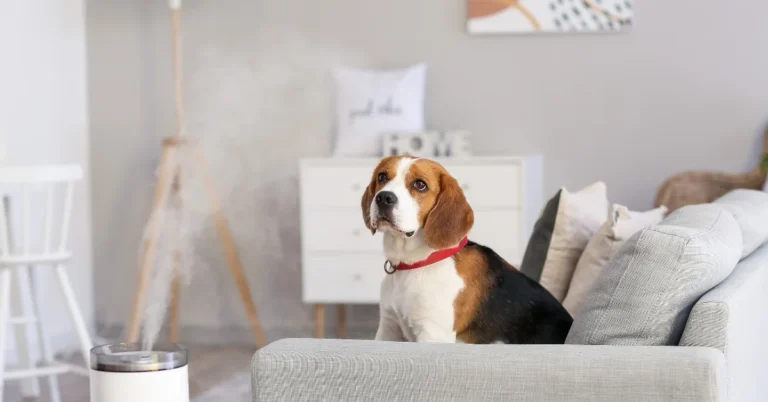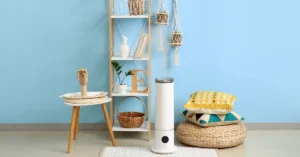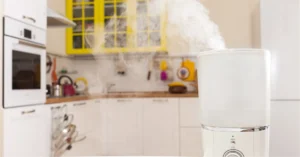Introduction
Ever wonder if your humidifier is actually helping or hurting your dog? You might think it’s just a handy device to keep the air moist during those dry winter months, but could it be affecting your furry friend? Pet owners often invest in humidifiers to make the air more comfortable for themselves and their pets, especially in dry climates or homes with forced-air heating. But is a humidifier truly safe for dogs, and what should you watch out for? Let’s dig into how humidifiers impact your dog’s health and how you can ensure you’re creating a safe environment.
Why Use a Humidifier Around Dogs?
Humidifiers are popular for keeping the air in your home moist, especially during winter when heaters dry out the air. But did you know your dog might benefit, too? Just like us, dogs can suffer from dry skin, irritated noses, and respiratory discomfort when the air is too dry. A humidifier can help ease these issues, making it easier for your pup to breathe, especially if they have allergies or respiratory conditions like kennel cough.
For dogs living in arid regions or homes with heating systems that strip moisture from the air, a humidifier can be a real comfort.
Potential Dangers of Humidifiers for Dogs
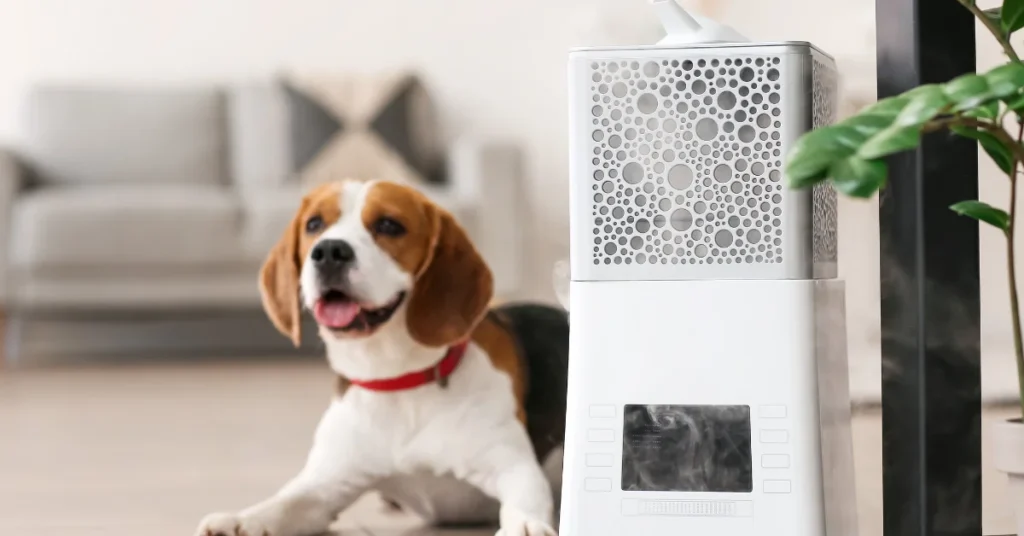
While humidifiers can offer benefits, they’re not without risks when used improperly around pets. Some common concerns include:
- Burns from Warm Mist Humidifiers: These models use boiling water to create steam, which can be dangerous for curious dogs. If knocked over, they can cause burns, making cool mist humidifiers a safer choice.
- Mold and Bacteria Growth: Humidifiers that aren’t cleaned regularly can become breeding grounds for mold and bacteria, which can then be released into the air. Breathing in contaminated air can lead to respiratory problems for your dog.
- Essential Oils and Chemicals: Many pet owners wonder if adding oils like eucalyptus to their humidifiers is safe. However, essential oils, including eucalyptus, can be toxic to dogs when inhaled, leading to nausea, drooling, or more serious health issues.
Is Eucalyptus Safe for Dogs in a Humidifier?
Eucalyptus oil, often praised for its soothing effects on humans, can actually be harmful to dogs. Although it might smell refreshing to us, when dispersed in a humidifier, eucalyptus can be toxic to your pet. Dogs have a much more sensitive respiratory system, and inhaling eucalyptus oil can cause issues ranging from mild discomfort to serious respiratory distress.
Signs of eucalyptus toxicity in dogs include drooling, vomiting, difficulty breathing, and lethargy. So, it’s best to avoid adding any essential oils to your humidifier when pets are present. Instead, stick to plain water to ensure the air is safe for everyone in the household.
Are Vicks Humidifiers Safe for Dogs?
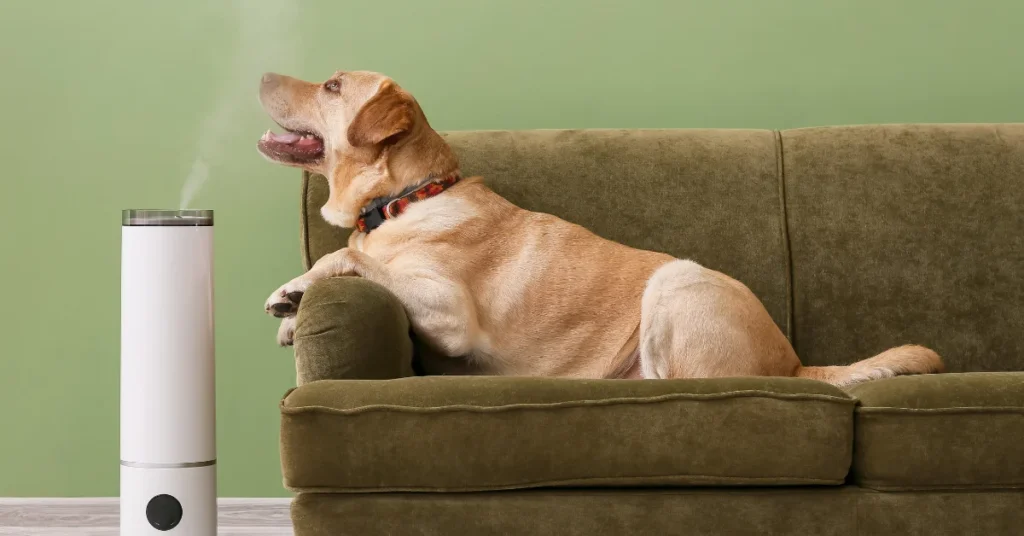
Vicks humidifiers are popular for easing human respiratory issues, thanks to their use of menthol and other active ingredients. However, when it comes to dogs, these same ingredients can pose problems. Vicks vapor products contain menthol, which can irritate your dog’s respiratory system when inhaled. Though it might clear up congestion for people, it could cause coughing, wheezing, or even more serious breathing issues in dogs.
To keep your dog safe, it’s better to avoid using Vicks or other vapor-infused humidifiers around them. Instead, choose a simple, cool mist humidifier without any added substances.
Would you like me to continue with the section on cats and dogs coexisting with humidifiers?
Can Cats and Dogs Coexist with Humidifiers?
If you have both dogs and cats in your home, you might wonder if a humidifier is safe for them, too. Fortunately, most standard humidifiers, especially cool mist models, are generally safe for both dogs and cats. However, like dogs, cats are sensitive to essential oils and chemical vapors. Humidifiers that use oils like eucalyptus or menthol can irritate their respiratory systems and even be toxic.
While dogs may be curious about a humidifier, cats might be a bit more cautious. Some cats may actually enjoy the added moisture in the air, but always watch for signs of discomfort, such as sneezing, coughing, or avoiding the room where the humidifier is placed.
Shall I proceed with the section on how to choose a pet-friendly humidifier?
How to Choose a Pet-Friendly Humidifier
When selecting a humidifier for a home with pets, it’s important to choose one that promotes healthy air without posing any risks. Here’s what to look for:
- Cool Mist Humidifiers: These are the safest option for pets since they don’t involve boiling water. There’s no risk of burns, making them ideal for homes with curious animals.
- No Essential Oils or Additives: Avoid humidifiers that rely on essential oils or vapor treatments like menthol. Stick to plain water to ensure your dog or cat isn’t inhaling anything harmful.
- Easy-to-Clean Models: Humidifiers can quickly collect mold and bacteria if not cleaned regularly. Look for models that are easy to clean to prevent the spread of harmful particles into the air.
- Quiet Operation: Pets can be sensitive to noise, so a quiet humidifier will keep them comfortable and stress-free.
By choosing a pet-friendly model and keeping it well-maintained, you can improve the air quality in your home without worrying about your furry companions.
Signs Your Pet May Be Uncomfortable Around a Humidifier
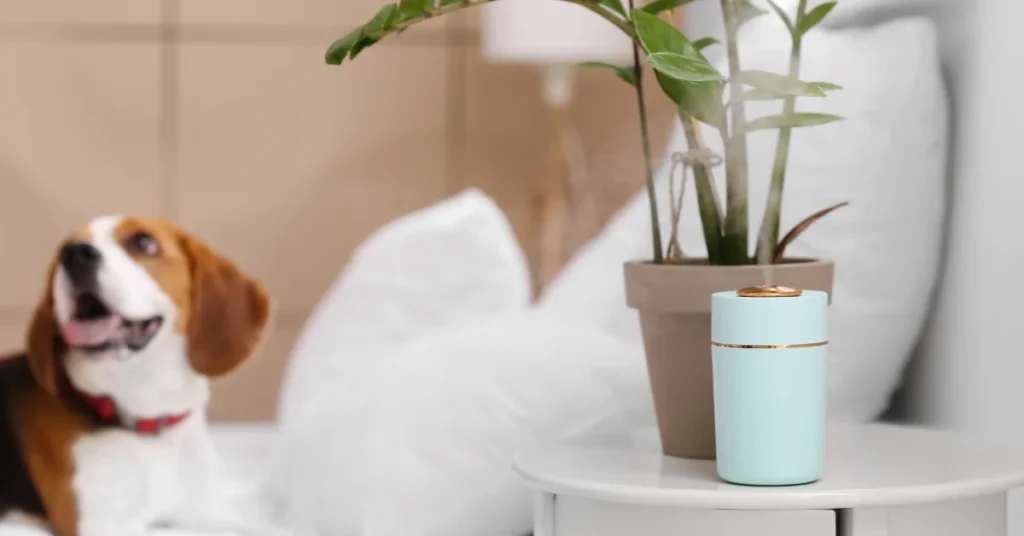
Even with a pet-friendly humidifier, it’s important to observe how your dog or cat reacts. Here are some signs that your pet may be uncomfortable or even irritated by the humidifier:
- Coughing or Sneezing: If your pet starts coughing or sneezing more than usual, it could be a sign that the humidifier is affecting their respiratory system.
- Avoiding the Room: If your dog or cat is avoiding the room where the humidifier is located, it might be a signal that they don’t like the environment it’s creating.
- Lethargy or Discomfort: If your pet seems unusually tired, sluggish, or restless, it could be due to the air quality or something being emitted by the humidifier.
If you notice any of these signs, turn off the humidifier and observe if their symptoms improve. Always consult your vet if you’re concerned about your pet’s reaction to the humidifier.
Conclusion
In summary, humidifiers can be a great way to improve the air quality in your home, especially during dry seasons, but it’s important to make sure they’re safe for your pets. Cool mist humidifiers without essential oils are generally safe for both dogs and cats. However, it’s crucial to avoid humidifiers that use potentially harmful substances like eucalyptus or menthol, and to regularly clean the device to prevent mold and bacteria buildup. By choosing the right humidifier and watching for signs of discomfort, you can keep both your air and your pets healthy.
